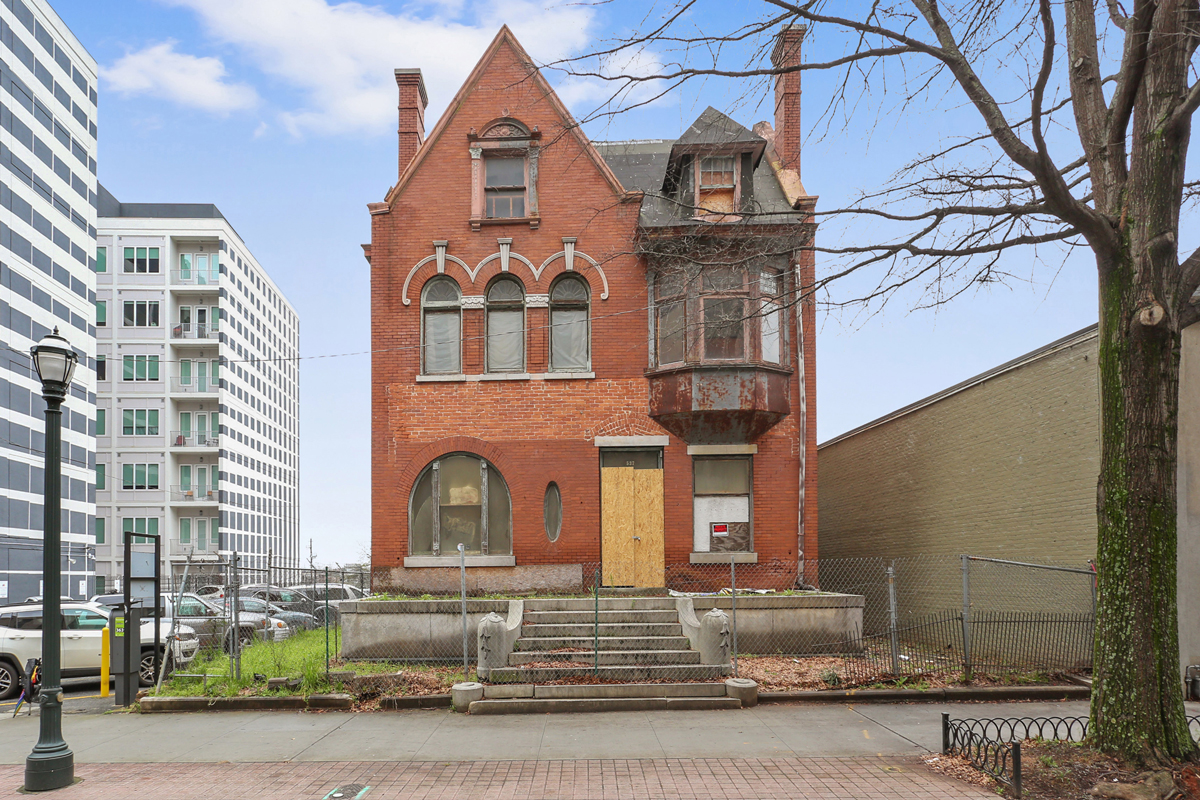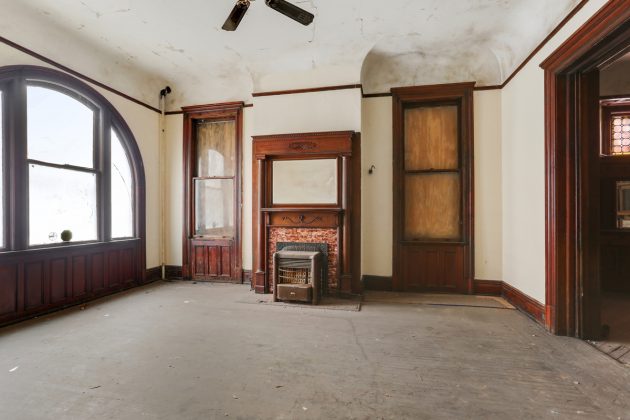
Photograph courtesy of Keller Williams Realty Atlanta Midtown
After many false starts and unfulfilled renovation plans, a high-profile historic Atlanta home occupying valuable real estate is again up for sale, but this time locals jaded by decades of short-sighted development don’t need to worry about the wrecking ball.
The property in question is the Rufus M. Rose House, built in 1901 in the then-popular Queen Anne Revival architectural style. The three-story brick house would arguably be less remarkable if it were elsewhere in Georgia or even in, say, Inman Park. But the fact that it’s one of the last remaining Victorian-era mansions remaining on Peachtree Street—along with Rhodes Hall and the Wimbish House—ratchets up its importance.
Its status as a locally designated Landmark Building, acquired in 1989, means it can’t be torn down, and any rehab plans must pass muster with the city’s Urban Design Commission.
Most older Atlantans likely best remember the Rose House—which for years has sat vacant across the street from what is now Emory Midtown Hospital—as the longtime home of the so-called Atlanta Museum, a quirky, private collection that showcased Civil War antiquities and Coca-Cola mementos alongside a WWII Japanese Zero plane and a throne purported to have belonged to Ethiopian emperor Haile Selassie.
Yet the house has a better claim to fame, albeit one that’s in serious dispute. Its original owner, Confederate veteran Rufus Rose, made his fortune as a whiskey maker, and most local websites unhesitatingly credit him as the founder of the Four Roses distillery, which produced the country’s top-selling bourbon during whiskey’s mid-century golden age. “In 1906, the ‘Four Roses’ trademark was registered, probably named for Rufus, his brother Origen, and their two sons,” declares the Atlanta Urban Design Commission’s page on the house.
And yet, promotional material for the Four Roses distillery—inconveniently located 375 miles away in Louisville—mentions not a word about Rufus or Origen, instead claiming its founder was a Paul Jones Jr. What the company’s website fails to mention is that Jones was a grocer and distiller in Atlanta before moving his business to Kentucky. The controversy has not gone unnoticed among whiskey scholars, who continue to debate possible backstories. A few years back, WABE quotes a local historian saying he could find no tangible evidence linking the Rose clan to Four Roses, Atlanta connection notwithstanding.
What’s not in doubt is that the 5,200-square-foot house at 537 Peachtree Street was occupied by the Rose family until 1923, 13 years after Rufus had shuffled of his mortal coil and moved into this impressive crypt at Oakland Cemetery. It became a ladies’ rooming house, offices, and a private residence several times again before it was finally purchased in 1945 by antiques dealer James Elliott, Sr., who opened it as a “museum” to the paying public. His son kept the business running until his own death in 1989, after which the contents were sold and the building was briefly used, appropriately enough, as headquarters for the Atlanta Preservation Center.
In 2005, the Rose House was bought by cable TV entrepreneur Vincent Castelli, founder of the short-lived American News Network, who announced his intention to renovate the home as his residence—but that never happened. The property changed hands again in 2011, picked up at auction for the low, low price of $310,000 by pharmacist Gholam Bakhtiari. He charged his daughter, Liliana, who ran a close race for city council in 2017, with managing its restoration into a multi-use arts center. It’s uncertain how much work was done, but the family now has it back on the market for a cool $1 million.
Interested in buying some Peachtree Street frontage? To sweeten the deal, preservation group Historic Atlanta, Inc. will kick in five hours of free consultation to help the new owner apply for historic tax credit programs.
















![The North Carolina Museum of Natural Sciences’ newest exhibit is a [pre]historic first](https://cdn2.atlantamagazine.com/wp-content/uploads/sites/4/2024/04/DD-3-100x70.jpg)


